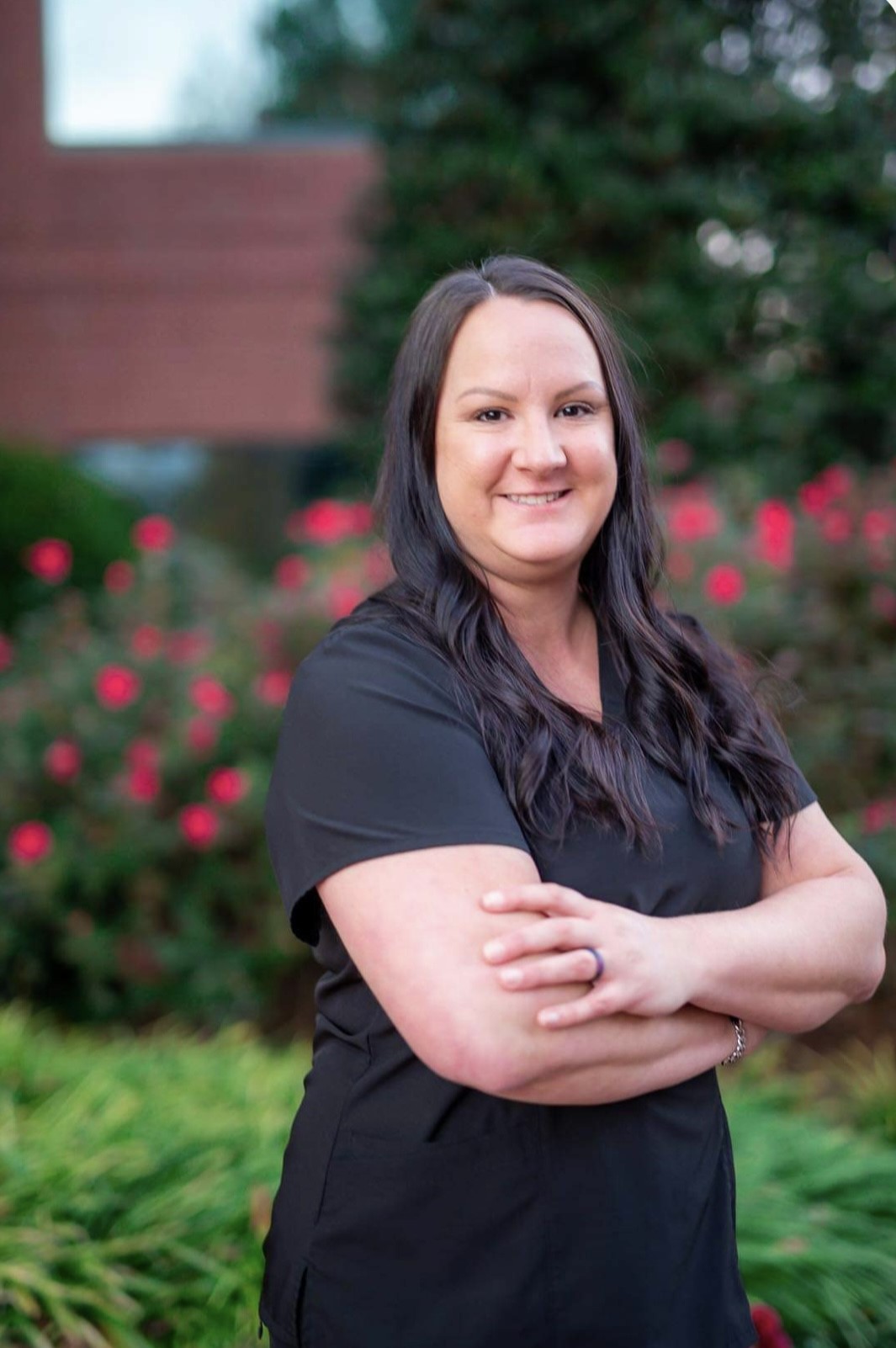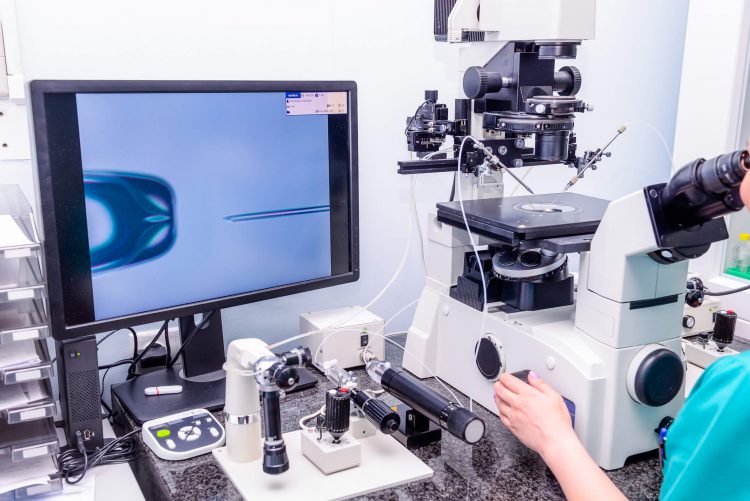On July 25th, 1978, a symbol of optimism was born to the world in the form of Louise Brown, the first baby conceived through in vitro fertilization (IVF). Today, we stand in awe of the staggering progress that has been made since that landmark event, and we pay tribute to the transformative power of IVF in the lives of millions of families.
The cornerstone of this achievement lies in the hands of our often-unsung heroes – embryologists. They use their knowledge and skills carefully and accurately to ensure the best care possible. CCRM embryologists do their work with a lot of heart, and this brings the science they’re so good at to life.
At CCRM, we are proud to host an elite team of embryologists and to provide cutting-edge labs that meet the highest industry standards. Our commitment to ensuring the best possible care for everyone who walks through our doors is unwavering.
We understand that every journey to parenthood is unique, and we honor that uniqueness with tailored, person-centric care. Backed by an unrivaled level of expertise and the latest in medical technology, we are trailblazers at the cutting edge of reproductive medicine.
We recently had an enlightening conversation with our skilled embryologist, Mandy Schultz, who is a key member of our team at CCRM Fertility of Virginia Beach. She shared her extensive knowledge and unique insights into the fascinating field of embryology.

What is embryology?
M.S. – Embryology is the branch of biology that studies the development of embryos from fertilization to birth. It provides key insights into the earliest stages of life, helping us understand how organisms form and grow.
What led you to pursue a career in embryology?
M.S. – I had an amazing biology teacher in high school and that’s when my love for biology began. I pursued cell and animal biology from there. I always knew that I did not want to teach biology or have a career devoted to research. I knew I wanted to be strictly clinical. I graduated college and immediately sent resumes to any lab facilities. I sent out 60+ resumes in the Chicago area and I received 1 call back. The call I received was from an andrology lab associated with Northwestern University. Little did I know that call that I received 19 years ago, would start a career that I love. I worked for that lab for a year and was trained on all things-sperm related. I then wanted to see the other side, the egg retrievals and embryo generation. Once I shadowed an embryologist for a day, I knew that I wanted to have so much more involvement in patient’s lives. I wanted to perform the lab duties from sperm prep all the way through embryo biopsy and embryo transfer.
How do you stay current with the latest research and advancements in embryology?
M.S. – Over the course of my career, I have cultivated relationships with embryologists from around the country. Part of maintaining those relationships is discussing trends in the field, new equipment, and protocols aligned to the ever-increasing understanding of human reproduction. My news feed also helps me stay connected to advancements in genetics which often goes hand in hand with changes in embryology.
How have recent advancements in embryology, like genetic screening, affected your work?
M.S. – There are so many new and exciting ways we can support patients. Our ability to screen for genetic disorders especially allows us to increase the odds of providing our patients with the families they’ve always dreamed of.
How do you ensure quality control and manage potential risks in the laboratory?
M.S. – Strict adherence to protocols and overlapping controls like dual identification, daily checks, and calibrations help to ensure consistency and accuracy. This also allows us to quickly identify variables that may contribute to different results from one cycle to the next.
In your opinion, what are some of the most exciting developments or future possibilities in the field of embryology?
M.S. – Deeper understanding of genetics and cellular development should help us achieve greater success rates with fertilization and embryo development. This will ultimately give patients more opportunities for pregnancy.
What role does communication play in your job, particularly in terms of liaising with other healthcare professionals or communicating with patients?
M.S. – Communication is vital to the success of any practice. Ultimately, the best patient care and lab results stem from a team that works well together through both the planned and unplanned events on any given day.
How do you handle the emotional aspects of your work, given that many couples undergoing IVF are dealing with infertility issues?
M.S. – I’m fully invested in my patients’ success as they go through this experience. My experience in this field has helped me develop a more balanced, long-term view of patient care. I know our patients put their minds and bodies through an immense amount of stress through the process. The thing that works best for me is to remain calm and reassure our patients when times are tough, and to really celebrate the milestones of success.
Since joining the CCRM network and laboratory, what is the difference between a “typical” lab and the CCRM labs?
M.S. – What I have experienced has been nothing but a “patient first” mentality and having the best state-of-the-art medical equipment to provide better results. Well-organized protocols and practice structure leading to less wasted energy and more time devoted to meeting the patients’ needs are also key components of a CCRM lab.
Why should patients make CCRM their first choice?
M.S. – CCRM is a network of professionals devoted to patient care. With us you are not just getting the help of your local lab but getting the support of our entire network. I have witnessed this firsthand through the day-to-day practices at our center. Support from all levels of the organization ensures that we have what we need to provide patients with the support and resources they need.
Why should the next generation choose embryology?
M.S. – Few people get to say, “See those parents smiling, hugging their child? I did that.” You go home at the end of the day, knowing for a fact that you were able to help a couple achieve their dreams of a family, when they had maybe lost hope, that’s something truly special.
CCRM and our talented embryologists represent not just a medical center, but a beacon of hope for those embarking on their journey to parenthood. We constantly push the boundaries of what’s possible in IVF and embryology, endeavoring to make the dream of parenthood a reality for more people each day.
As we look to the future, our promise is to continue to uphold the highest standards of care, to remain at the forefront of technological advancements in embryology, and to offer the best possible outcomes to those who entrust their dreams of parenthood to us. On this World Embryology Day (IVF Day), and every day, we stand committed to this mission. It is not just what we do; it is who we are, CCRM.


